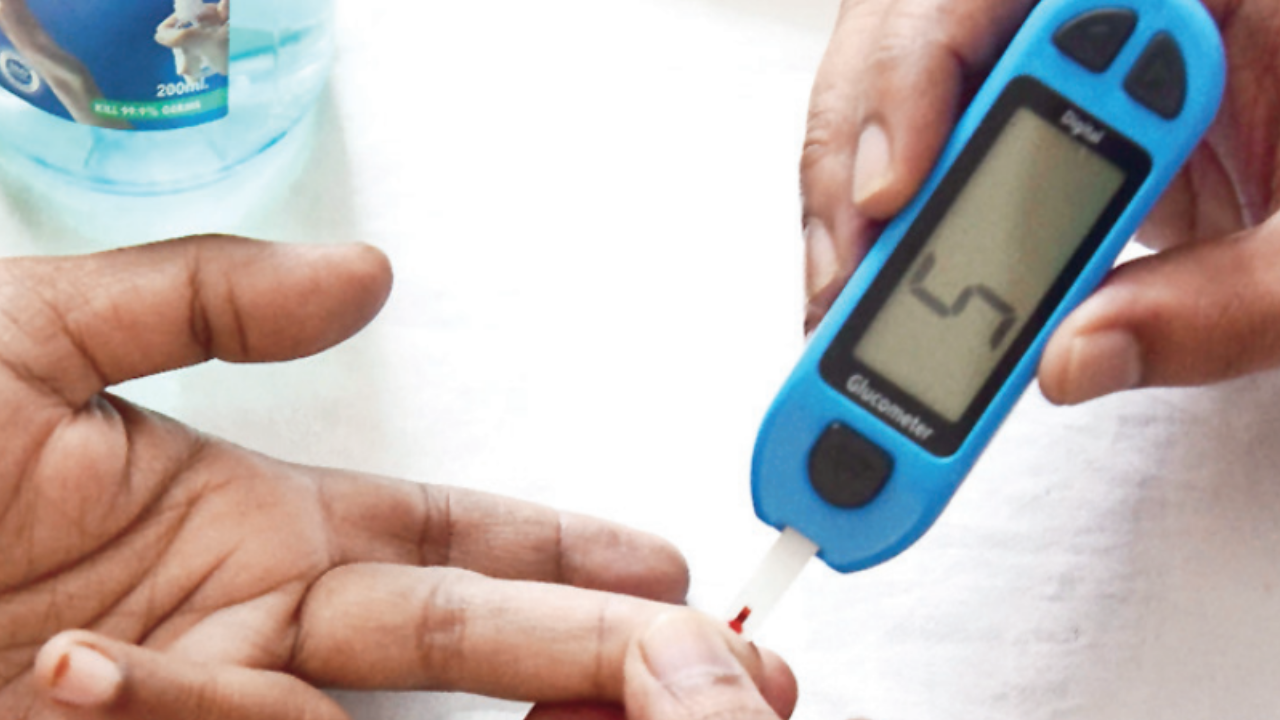MUMBAI: One out of five patients with diabetes in the country has complications affecting the body’s small blood vessels that could eventually lead to kidney failure, blindness or severe nerve damage, says an all-India study that followed up over 6,000 patients for over three years.
The study, which was recently published in the peer-reviewed medical journal, ‘Endocrinology, Diabetes & Metabolism’, focused on management of diabetes after a patient was diagnosed and put on medication.”In real-world settings, we found people couldn’t achieve the level of control they wanted and, hence, complications related to diabetes were high,” said Dr Shalini Menon, one of the authors of the study.
Diabetes, a chronic health condition that affects how the body turns food into energy, is known to affect one’s heart, nerves, kidneys, eyes, foot, among other organs. The study, which was sponsored by a pharma major, found that the patient pool had other health problems other than diabetes – around 60% were obese and 80% had hypertension and six of 10 had high levels of cholesterol, suggesting a higher risk of heart attacks. “The study recorded 54 deaths due to cardiovascular disease in these three years,” said the doctor.
Senior endocrinologist and author of the study, Dr Shashank Joshi, said the main finding of the study was the poor A1c test results. The A1c blood test measures one’s average blood sugar levels over past three months. “There seems to be some inertia in hitting hard and hitting early,” he said, pointing to poor medicine schedules.
Dr Joshi said non-fatal myocardial infarction, or heart attacks, was reported in 40% of patients while neuropathy was the most common complication.
Dr Tushar Bandgar, head of endocrinology department at KEM Hospital, Parel, and wasn’t associated with the study, said the real problem with diabetes lay with changing lifestyles and poor prevention strategies.
“The number of diabetes cases in the country is only increasing. This reflects the fact that we are not doing enough on prevention,” he said. “If there are more cases of diabetes, there are bound to be more complications. It is not as if there are not adequate drugs. It is just a matter of poor control and prevention,” he said.
While diabetes affected barely 3% of the population until three decades back, it now affects almost 9% of India’s adult population. “People are eating more and have picked up addictions such as tobacco or alcohol,” he said.
Dr Joshi added that those with diabetes not only have to check their eyes and heart function once a year, they also have to check for albumin in urine and lipid levels every three months. “People also need to exercise, diet and sleep adequately,” he added.
The study, which was recently published in the peer-reviewed medical journal, ‘Endocrinology, Diabetes & Metabolism’, focused on management of diabetes after a patient was diagnosed and put on medication.”In real-world settings, we found people couldn’t achieve the level of control they wanted and, hence, complications related to diabetes were high,” said Dr Shalini Menon, one of the authors of the study.
Diabetes, a chronic health condition that affects how the body turns food into energy, is known to affect one’s heart, nerves, kidneys, eyes, foot, among other organs. The study, which was sponsored by a pharma major, found that the patient pool had other health problems other than diabetes – around 60% were obese and 80% had hypertension and six of 10 had high levels of cholesterol, suggesting a higher risk of heart attacks. “The study recorded 54 deaths due to cardiovascular disease in these three years,” said the doctor.
Senior endocrinologist and author of the study, Dr Shashank Joshi, said the main finding of the study was the poor A1c test results. The A1c blood test measures one’s average blood sugar levels over past three months. “There seems to be some inertia in hitting hard and hitting early,” he said, pointing to poor medicine schedules.
Dr Joshi said non-fatal myocardial infarction, or heart attacks, was reported in 40% of patients while neuropathy was the most common complication.
Dr Tushar Bandgar, head of endocrinology department at KEM Hospital, Parel, and wasn’t associated with the study, said the real problem with diabetes lay with changing lifestyles and poor prevention strategies.
“The number of diabetes cases in the country is only increasing. This reflects the fact that we are not doing enough on prevention,” he said. “If there are more cases of diabetes, there are bound to be more complications. It is not as if there are not adequate drugs. It is just a matter of poor control and prevention,” he said.
While diabetes affected barely 3% of the population until three decades back, it now affects almost 9% of India’s adult population. “People are eating more and have picked up addictions such as tobacco or alcohol,” he said.
Dr Joshi added that those with diabetes not only have to check their eyes and heart function once a year, they also have to check for albumin in urine and lipid levels every three months. “People also need to exercise, diet and sleep adequately,” he added.






